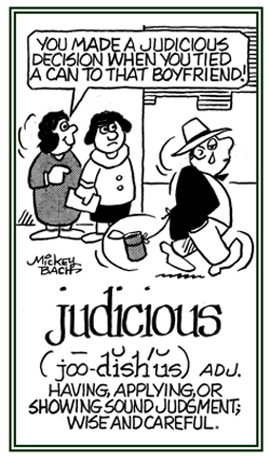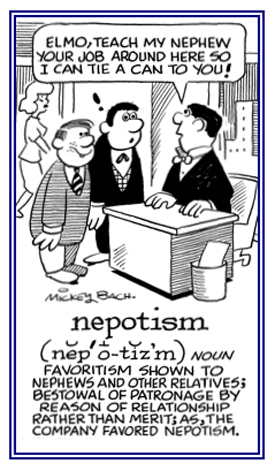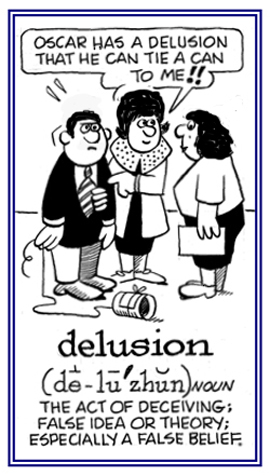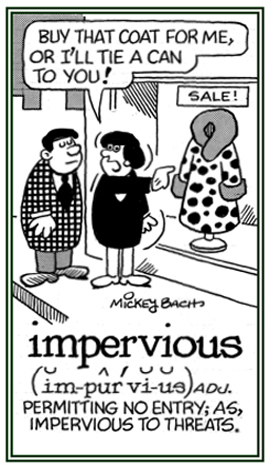2. Used to indicate that something is possible or probable: Greg mentioned, "If you work hard now, you may end up sitting in the supervisor's chair some day.
2. Used to talk about a possible condition that does not or did not actually exist: Steve said, "If you were older, you might understand what your mother is talking about."
Do you think it might be possible that I may write my examination tomorrow? I know I can study tonight and be ready by then.
Here is an old proverb: While bryophytic plants are typically encountered as substrata of earthly or mineral matter in concreted state, discrete substrata elements occasionally display a roughly spherical configuration which, in the presence of suitable gravitational and other effects, lends itself to a combined translatory and rotational motion. One notices in such cases an absence of the otherwise typical accretion of bryophyta.
The proverb means: “A rolling stone gathers no moss.”
What was a young man saying to a young woman in the following sesquipedalian?
They shine more rutilent than ligulin—those labial components that surround thy pericranial orifice, wherein denticulations niveous abound!
Commingle them with my equivalents! Let like with like nectareously converge! From the predestined confluence some sempiternal rapture must emerge!
As Willard Espy put it, “After all, he was only asking her for a kiss. Jargon may be useful to hide one’s real thinking, or lack of it, but it can be downright self-defeating if you are trying to persuade someone to do something. A young man learned that when he addressed these words to the maiden he loved, only to be shown the door.”
Both of the foregoing were compiled by Willard R. Espy.
The letters MS refer to two things: One is a debilitating and surprisingly widespread affliction that renders the sufferer barely able to perform the simplest task; the other is a disease. In other words, MS stands for the name of a well-known software company or for the disease Multiple Sclerosis.
Before you read this section about mnemonics, please STOP here NOW, and take a “pre-test” over the words that will be discussed. Even if you do well on this test, you may still come back for the presentation. So, please go to (click on) the Mnemonics "Seed" Quiz over -cede, -ceed, -sede words to see how well you can spell words that have the endings that are pronounced “seed”.
How to decide between -cede, -ceed, and -sede.
Problems: Is it supercede, superceed, or supersede? Is it accede or acceed? Is it proceed or preceed, and is it excede or exceed?
1. Of the twelve words, one, and only one, ends in the four letters -S-E-D-E. That one word is supersede
Supersede, is the only word in the entire English language that is spelled with the -sede ending.
Supersede was born in Rome thousands of years ago. It comes from Latin super, “above”, and sedeo, “to sit”.
If one thing supersedes another, it figuratively, and by derivation, “sits above or over it”; that is, “it replaces” something. An example: “The year 2000 will supersede 1999.”
Supersede is the only verb in English that derives directly from Latin sedeo, to sit, hence the only word with the -sede termination.
There are many nouns and adjectives that come indirectly from sedeo or one of its forms:
president, one who sits before a group;
sedentary, moving little, hence sitting, as in a sedentary occupation;
session, a sitting or meeting of a group of people;
sedate, calm, hence sitting still, etc.
2. There are three other unique words that you should learn, the three words that end in the letters -C-E-E-D: succeed, proceed, and exceed.
accede, to give consent; to become a party to an agreement or treaty.
antecede, to precede; that is, to come before in time or order.
cede, to surrender possession of formally or officially; to yield or grant, as by a treaty.
concede, 1. To acknowledge as true, just, or proper, often unwillingly; to admit by conceding the point. 2. To give or grant as a privilege or right.
intercede, to argue on another’s behalf; to act as a mediator in a dispute; to come between.
precede, to come before in time, in rank, or order.
recede, to move back or away from a limit, point, or mark.
secede, to withdraw formally from membership in an association, organization, or alliance, especially a political one.
Succeed starts with “s”.
Proceed starts with “p”, and means go ahead.
Exceed starts with “e”.
1. Any annoying doubt as to whether a word correctly ends in -ceed or -cede.
2. Any error in writing -cede for -ceed, or vice versa.
Speed ends in -eed.
The “s” of speed identifies succeed.
The “p” of speed identifies proceed.
The “e” of speed identifies exceed.
The ending of speed identifies the endings of all three words: succeed, proceed, exceed.
Finally, the word “ahead” in “Full Speed Ahead” identifies proceed, which means “go ahead”, and eliminates “precede”, which means “come before”.
Proceed, as you know, belongs to one of the three -ceed verbs, but the noun and adjective forms do not follow the same format. Contrary to what you might normally expect, these forms are spelled: procedure and procedural.
-sede.
Only one word in English ends in -sede, namely supersede.
Only three words in English end in -ceed, namely succeed, proceed, and exceed (mnemonic: Full speed Ahead).
All of the other words with a similar “seed” sound end in -cede.
Procedure and procedural; however, do not follow the pattern of proceed.
Now is a good time to test yourself.
Would you like to see if the mnemonic devices I have given to you function properly? If so, just click on this self-grading Mnemonics "Seed" Quiz again so you can re-take the -cede, -ceed, -sede words so you can see how easy it is to recognize the correct spelling of these words.
First, the results of the principal/principle survey
The spelling of many English words are confusing even to those whose first language is English.
There were 45 per cent of the subscribers on the Focusing on Words Newsletter list who responded to the survey.
- 1. The (principal/principle) reason for this discussion is to improve one’s spelling skills.
Of those responding, 68 per cent chose the right answer (principal).
- 2. All of us should live by certain moral (principals/principles).
Ninety-nine per cent chose the right answer (principles) in number two.
- 3. The (principal/principle) character in the play is ill.
In number three, eighty-two per cent chose the right answer (principal).
- 4. His political (principals/principles) are less than acceptable.
In number four, ninety-seven per cent chose the right answer (principles).
- 5. As a matter of (principal/principle), he refused to borrow money from anyone.
In number five, ninety-seven per cent chose the right answer (principle).
- 6. The (principal/principle) invested in that project was $100,000.
Of those participating, eighty-five per cent made the correct choice of (principal) in number six.
- 7. We must instill into the minds of our youth (principals/principles) of honesty and morality.
Ninety-seven per cent of participants indicated the right answer (principles) in the last number.
A few words about the use of mnemonic devices that make it easier to remember how to spell certain words correctly.
Although many subscribers had different mnemonic devices for determining which principal/principle to use in a sentence, the best mnemonics to use seem to be “main” for principal and “rule” for principle.
Note the relationship of the “a” in main and principal and the “le” in rule and principle. Always make these relationships and you will always use them correctly.
Mnemonic [nee MAH nik], as in mnemonic device, comes from the Greek element that means, “memory” or “to remember” and refers to a technique that facilitates making the right choices for words that are otherwise confusing.
Whenever you want to make sure you have chosen the correct principal/principle, substitute the words main and rule in place of one or the other principal/principle, to see if it makes sense and when it does; it is certain that you have the right choice. For example, in number one, you could say, “The rule reason for this discussion ....” or say, “The main reason for this discussion ....” and you would logically have to choose main or “principal” because the other choice simply doesn’t make any sense.
So many people have used the mnemonic device of saying, “You spell the principal of the school with pal because he/she is your pal” or something similar to that. I strongly urge that you NOT use this mnemonic because it can be very misleading. It tends to make people think that the use of pal is used only with that particular principal. It is far better to say that the principal of the school is spelled with pal because he/she is the MAIN administrator, teacher, or educator of the school.
Did you notice the erratum in sentence number seven of the survey. Mea culpa. I used “install” instead of “instill into the minds ....”
Congratulations to nine subscribers (out of the 412 who participated) who saw and told me about this error (erratum). If there had been more than one erratum, then I would have had to confess to errata.
Thank you, if you were one of those who contributed to the survey. It was amazing to see that MOST of the participants made no errata in their submissions. I apparently have a VERY knowledgeable list of subscribers!
Anyone who has had a can tied to him or her is a person whose presence is no longer desired.


Go to this Word A Day Revisited Index
so you can see more of Mickey Bach's cartoons.
Something that is no longer wanted nor appreciated.

Go to this Word A Day Revisited Index
so you can see more of Mickey Bach's cartoons.
2. To control or to stop an activity: A woman said that her husband was deceiving himself if he thinks he can tie a can to her.

Go to this Word A Day Revisited Index
so you can see more of Mickey Bach's cartoons.
3. To control someone or to make him or her do something: Another wife wants her husband to buy her a coat or she will tie a can to him in order to make him do what she wants him to and he is apparently not concerned about her threat.

